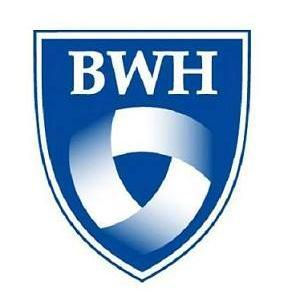预约演示
更新于:2025-05-07

Portola Pharmaceuticals LLC
更新于:2025-05-07
概览
标签
免疫系统疾病
眼部疾病
其他疾病
小分子化药
重组凝血因子
疾病领域得分
一眼洞穿机构专注的疾病领域
暂无数据
技术平台
公司药物应用最多的技术
暂无数据
靶点
公司最常开发的靶点
暂无数据
| 疾病领域 | 数量 |
|---|---|
| 免疫系统疾病 | 1 |
| 排名前五的药物类型 | 数量 |
|---|---|
| 小分子化药 | 1 |
| 重组凝血因子 | 1 |
| 排名前五的靶点 | 数量 |
|---|---|
| Syk(脾酪氨酸激酶) | 1 |
| factor Xa(激活型凝血因子X) | 1 |
关联
9
项与 Portola Pharmaceuticals LLC 相关的药物作用机制 factor Xa抑制剂 |
在研机构 |
在研适应症 |
非在研适应症 |
最高研发阶段批准上市 |
首次获批国家/地区 美国 |
首次获批日期2018-05-03 |
靶点 |
作用机制 Syk抑制剂 |
在研适应症 |
非在研适应症- |
最高研发阶段临床2期 |
首次获批国家/地区- |
首次获批日期- |
作用机制 factor Xa抑制剂 |
在研机构- |
在研适应症- |
最高研发阶段撤市 |
首次获批国家/地区 美国 |
首次获批日期2017-06-23 |
31
项与 Portola Pharmaceuticals LLC 相关的临床试验NCT04021082
CELTIC-1 (Clinical Evaluation of T-cell NHL With Cerdulatinib): A Phase 2b, Open Label, Multidose, Multinational Study of Cerdulatinib (PRT062070) in Patients With Relapsed/Refractory Peripheral T-cell Lymphoma (PTCL)
This is an open-label, multinational study of cerdulatinib in patients with relapsed/refractory PTCL dosed with cerdulatinb, designed to (1) Evaluate tumor response, (2) Assess the safety and tolerability of cerdulatinib, (3) Evaluate duration of response (DUR), progression free survival (PFS) and overall survival(OS), (4) Determine the PK properties of cerdulatinib, (5) Evaluate the efficacy endpoints based on Lugano criteria per IRC and (6)To assess the relationship between target expression (e.g., spleen tyrosine kinase [SYK], Janus kinase [JAK]) and relevant anomalies (e.g., SYK-ITK translocation, mutations in the JAK/STAT pathway) with clinical response.
开始日期2019-11-15 |
申办/合作机构 |
NCT03728166
Randomized Controlled Trial of Computerized Decision Support for Prevention of Venous Thromboembolism in Hospitalized Medical Patients Across the Continuum of Care (DC-eALERT)
Hospitalized medical patients have an increased risk of venous thromboembolism (VTE) across the continuum of care, including after hospital discharge. In the APEX Trial of hospitalized patients with acute medical illness, extended-duration post-discharge thromboprophylaxis with oral betrixaban reduced the frequency of asymptomatic proximal deep venous thrombosis (DVT), symptomatic proximal or distal DVT, symptomatic nonfatal pulmonary embolism (PE), or VTE-related death compared with short-duration enoxaparin. Obstacles to integration of these data in the hospitalized Medical Service patient population, including failure to identify at-risk patients, educational gaps in strategies for VTE prevention after discharge, and medication nonadherence, can be overcome with alert-based computerized decision support. This study is a single-center, 400-patient, randomized controlled trial of an EPIC Best Practice Advisory (BPA; alert-based computerized decision support tool) to increase prescription of extended-duration post-discharge thromboprophylaxis and decrease symptomatic VTE in high-risk patients hospitalized with medical illness.
Specific Aim #1: To determine the impact of electronic alert-based CDS (EPIC Best Practice Advisory [BPA]) on prescription of extended-duration post-discharge thromboprophylaxis in high-risk patients hospitalized with medical illness who are not being prescribed any prophylactic anticoagulation for VTE prevention after discharge.
Specific Aim #2: To estimate the impact of electronic alert-based CDS (EPIC BPA) on the frequency of symptomatic VTE in high-risk patients hospitalized with medical illness who are not being prescribed any prophylactic anticoagulation for VTE prevention after discharge.
Specific Aim #1: To determine the impact of electronic alert-based CDS (EPIC Best Practice Advisory [BPA]) on prescription of extended-duration post-discharge thromboprophylaxis in high-risk patients hospitalized with medical illness who are not being prescribed any prophylactic anticoagulation for VTE prevention after discharge.
Specific Aim #2: To estimate the impact of electronic alert-based CDS (EPIC BPA) on the frequency of symptomatic VTE in high-risk patients hospitalized with medical illness who are not being prescribed any prophylactic anticoagulation for VTE prevention after discharge.
开始日期2019-02-01 |
申办/合作机构 |
NCT03346083
A Phase 1, Open-Label, Single-Dose, Non-Randomized Study to Evaluate Pharmacokinetics, Pharmacodynamics, and Safety of Betrixaban in Pediatric Patients
This trial was a Phase 1, open-label, multicenter study of the pharmacokinetics (PK), pharmacodynamics (PD), and safety of a single dose of betrixaban in pediatric participants at risk of venous thromboembolism (VTE).
开始日期2018-07-13 |
申办/合作机构 |
100 项与 Portola Pharmaceuticals LLC 相关的临床结果
登录后查看更多信息
0 项与 Portola Pharmaceuticals LLC 相关的专利(医药)
登录后查看更多信息
171
项与 Portola Pharmaceuticals LLC 相关的文献(医药)2022-06-01·Thrombosis and Haemostasis2区 · 医学
Andexanet Alfa for Specific Anticoagulation Reversal in Patients with Acute Bleeding during Treatment with Edoxaban
2区 · 医学
Article
作者: Benz, Alexander P. ; Yue, Patrick ; Milling, Truman J. ; Lu, Genmin ; Crowther, Mark ; Eikelboom, John W. ; Middeldorp, Saskia ; Xu, Lizhen ; Conley, Pamela ; Connolly, Stuart J.
2022-04-01·JACEP Open
Thirty‐day mortality with andexanet alfa compared with prothrombin complex concentrate therapy for life‐threatening direct oral anticoagulant‐related bleeding
Article
作者: Curnutte, John ; Green, Laura ; Tan, Joachim ; Alikhan, Raza ; Connor, Augusta ; Lewis, Megan ; Cohen, Alexander T ; Connolly, Stuart J ; MacCallum, Peter ; Yue, Patrick
2022-02-01·Stroke1区 · 医学
Hematoma Expansion and Clinical Outcomes in Patients With Factor-Xa Inhibitor–Related Atraumatic Intracerebral Hemorrhage Treated Within the ANNEXA-4 Trial Versus Real-World Usual Care
1区 · 医学
Article
作者: Beyer-Westendorf, Jan ; Demchuk, Andrew M. ; Christoph, Mary J. ; Schwab, Stefan ; Middeldorp, Saskia ; Altevers, Julia ; Zotova, Elena ; Gerner, Stefan T. ; Yue, Patrick ; Andersohn, Frank ; Connolly, Stuart J. ; Stross, Leonhard ; Kuramatsu, Joji B. ; Huttner, Hagen B.
111
项与 Portola Pharmaceuticals LLC 相关的新闻(医药)2025-02-11
Patient enrollment advancing in SERENITY At-Home Phase 3 trial of BXCL501 for acute treatment of agitation associated with bipolar disorders or schizophrenia
Developed plans for TRANQUILITY In-Care Phase 3 trial of BXCL501 for agitation associated with Alzheimer’s dementia
Enhanced operational and financial flexibility through existing credit amendment
Strengthened strategic leadership with recent Board appointments
Feb. 05, 2025 -- BioXcel Therapeutics, Inc. (Nasdaq: BTAI), a biopharmaceutical company utilizing artificial intelligence to develop transformative medicines in neuroscience, today provided an update on the progress of its late-stage clinical programs for lead neuroscience asset BXCL501, as well as its recent steps to enhance operational and financial flexibility and strengthen its Board leadership.
“We continue to focus on advancing our SERENITY and TRANQUILITY programs to bring a much-needed new treatment option to address the estimated 140 million annual acute agitation episodes associated with bipolar disorders, schizophrenia, and Alzheimer’s dementia1-3,” said Vimal Mehta, Ph.D., CEO of BioXcel Therapeutics. “In addition, we have strengthened the business by amending our existing credit agreement, raising capital, and appointing additional leaders with considerable operational and clinical expertise to our Board of Directors. In parallel, we are continuing to manage costs and more closely align management and shareholder interests. Collectively, we believe these actions will help create value for all stakeholders.”
The majority of trial sites have been opened and patient enrollment is progressing with the SERENITY At-Home trial of BXCL501 for acute treatment of agitation associated with bipolar disorders or schizophrenia.
Developed plans for the TRANQUILITY In-Care trial of BXCL501 for agitation associated with Alzheimer’s dementia (AAD).
The Company plans to continue to supply IGALMI® to current and future customers through existing distribution channels, without commercial support.
Continue to generate deeper mechanistic insights for BXCL502 in support of its potential to be developed for the treatment of chronic AAD. A poster was presented at the annual meeting of the American College of Neuropsychopharmacology in Phoenix in December 2024.
Enhanced operational and financial flexibility through existing credit agreement amendment announced on Nov. 25, 2024.
Successfully raised $7 million gross proceeds in equity funding, which closed on Nov. 25, 2024.
The company has strengthened its Board of Directors with clinical, financial, and legal expertise.
Dr. Rajiv Patni has broad global product-development expertise in diverse therapeutic areas. He is currently CEO of Judo Bio, having previously served as Chief R&D Officer at Reata Pharmaceuticals, a commercial-stage company acquired by Biogen. Earlier, Dr. Patni was Chief Medical Officer at Global Blood Therapeutics, Portola Pharmaceuticals, and Adamas Pharmaceuticals, until their acquisitions by larger companies. He also held roles of increasing responsibility at Pfizer, Roche, and Actelion.
David Mack has a distinguished record of providing financial and legal leadership to a diverse range of domestic and international companies that has enabled them to effectively navigate through periods of transition. He has more than 25 years of experience as an attorney, director, and investor. He has extensive experience in leading transactions as well as deep knowledge of complex business matters.
Outside of its approved indication by the U.S. Food and Drug Administration as IGALMI® (dexmedetomidine) sublingual film, BXCL501 is an investigational proprietary, orally dissolving film formulation of dexmedetomidine, a selective alpha-2 adrenergic receptor agonist. BXCL501 is under investigation by BioXcel Therapeutics for the acute treatment of agitation associated with Alzheimer’s dementia and for the acute treatment of agitation associated with bipolar I or II disorder or schizophrenia in the at-home setting. The safety and efficacy of BXCL501 for these investigational uses have not been established. BXCL501 has been granted Breakthrough Therapy designation by the FDA for the acute treatment of agitation associated with dementia and Fast Track designation for the acute treatment of agitation associated with schizophrenia, bipolar disorders, and dementia.
BioXcel Therapeutics, Inc. (Nasdaq: BTAI) is a biopharmaceutical company utilizing artificial intelligence to develop transformative medicines in neuroscience. Its wholly owned subsidiary, OnkosXcel Therapeutics, is focused on the development of medicines in immuno-oncology. The Company’s drug re-innovation approach leverages existing approved drugs and/or clinically validated product candidates together with big data and proprietary machine learning algorithms to identify new therapeutic indications. For more information, please visit bioxceltherapeutics.com.
References
1. Data on file relating to agitation episodes associated with schizophrenia or bipolar I or II disorder. BioXcel Therapeutics, Inc. New Haven, CT December 2020. Episode estimations may not reflect potential treatable episodes, and actual addressable market may be smaller.
2. Data from Wu EQ, Shi L, Birnbaum H, et al. Annual prevalence of diagnosed schizophrenia in the USA: a claims data analysis approach. Psychol Med. 2006;36(11):1535-1540. Estimates based on whether indications are approved for at-home use for the intended patient population and such patients are treatable. Episode estimations may not reflect potential treatable episodes, and actual addressable market may be smaller.
3. National Institute of Mental Health. Prevalence of bipolar disorder in adults. November 2017. Accessed December 16, 2022. https://www-nimh-nih-gov.libproxy1.nus.edu.sg/health/statistics/bipolar-disorder. Episode estimations may not reflect potential treatable episodes, and actual addressable market may be smaller.
The content above comes from the network. if any infringement, please contact us to modify.

高管变更快速通道突破性疗法
2025-01-06
About four years ago, Sheldon Koenig was thinking about retiring. After spending decades in leadership roles at different pharmaceutical companies, hed led a successful career focused largely on cardiovascular therapeutics. Along the way, hed endured his own personal challenges with healthincluding a battle with cancer, which led him to discover he also had high cholesterol.But before he made the decision to leave the workforce, he was offered a job with Esperion Therapeutics and saw the potential to make an even greater impact on heart health. The opportunity to lead a company with both the challenges and the potential to provide a much-needed alternative to current treatments in cardiology was too great to turn down, says Koenig. He joined the company as chief operating officer in 2020 and in 2021 was promoted to president and chief executive officer.The years that hes been at the helm of Esperion have been a period of transformation for the company, which recently received FDA approval for broad new label expansions for its products. Koenig sat down with BioPharma Dive to talk about whats changedand whats nextwith the ever-evolving Esperion.What drew you to working at Esperion in 2020?I have been fortunate to spend most of my professional career working in cardiovascular health and it is a personal passion of mine to bring life-saving medicines to patients in need. People forget that cardiovascular disease remains the No. 1 cause of death for both men and women in the U.S. and worldwide. At Sanofi S.A., I served as senior vice president and head of the cardiovascular franchise. Prior to that, I was vice president and global brand leader for the cardiovascular division of Merck & Co. taking on roles of increasing responsibility within the companys cardiovascular and thrombosis franchises.Esperion CEO, Sheldon KoenigHowever, it is my own battle with cancer, where I have truly witnessed the transformative power of medical breakthroughs and the invaluable role they play in prolonging and improving the lives of countless individuals. This personal connection has only strengthened my resolve to contribute to the advancement of medical knowledge and the development of progressive treatments.When I was approached by Esperion, I was serving as executive vice president and chief commercial officer at Portola Pharmaceuticals until it was acquired by Alexion in August 2020. At that time, I was toying with the idea of retirement, but when I was presented with the Esperion opportunity it made me realize I still had more to accomplish.How has your experience with cancer, and your overall health journey, shaped you as a business leader?Ironically, it was while I was under treatment for cancer that my oncologist recommended I see a cardiologist about my high LDL cholesterol. From my professional experience I was well aware of the risks of elevated LDL. Today, I can speak with customers, investors and colleagues not only about the strong science behind our brands but also from my personal experience and success taking an Esperion product, myself.Since becoming president and CEO in 2021, what are some of your proudest accomplishments?While there have been many accomplishments leading up to 2024, this has been a truly transformational year for the company. First, we received FDA approval for an expanded label for our products that significantly increased the potential patient population of the previous highly restrictive indication. Simultaneous with pursuing the expanded label approval, we doubled Esperions existing sales force to prepare for the launch of the expanded indications. We also developed and launched an innovative and primarily digital marketing campaign to target and reach the widest possible audience of healthcare providers and patients utilizing impactful characters known as the Lipid Lurkers.Outside the U.S., we also solidified our relationship with our European partner, Daiichi Sankyo Europe (DSE), which led to DSE obtaining a label expansion for both brands in Europe. In Japan, our partner, Otsuka Pharmaceuticals, met the primary endpoint in Phase 3 clinical trials, moving the approval forward for that country. These are all exciting developments that illustrate how Esperion is poised for growth.What are your goals for 2025?I have three goals for 2025 that will lead us into an even brighter future. First, to continue to inform healthcare providers about our currently marketed products as well as expanding patient access and education for patients on their treatment options for uncontrolled LDL cholesterol. Second, continue to solidify our presence outside the U.S. by working with current partners and launching into other desirable world markets. Third, expanding our portfolio both through new partnerships and our Next Gen Program, which is exploring new therapeutic opportunities in ATP-citrate lyase (ACLY) biology, with the goal to develop next-generation inhibitors optimized to address multiple life-threatening diseases.Looking further ahead, whats your vision for Esperion?Esperion is priming to become more than a cardiovascular company by exploring broad spectrum opportunities in categories with no current standard of care. While I cant say too much on that topic yet, I can say that what lies ahead is incredibly exciting.In the more immediate future, we are thrilled to be presenting at the 2025 JPM Healthcare Conference. Esperion will have some news to share, including details on our upcoming R&D Day in the spring and developments in our pipeline. We look forward to meeting other innovators in the industry at the conference. For those who are unable to attend, our presentation will be available to anyone through a link on esperion.com.Esperion discovers, develops and commercializes innovative medicines to help improve outcomes for patients with or at risk for cardiovascular and cardiometabolic diseases. To learn more visit esperion.comand esperionscience.com. '
临床3期高管变更上市批准并购临床结果
2024-12-31
·动脉网
近日,Nuvig Therapeutics(以下简称Nuvig)宣布完成1.61亿美元的B轮融资。此次融资由Sanofi Ventures(赛诺菲风险投资基金)、Blue Owl Healthcare Opportunities(前身为Cowen Healthcare Investments)和Norwest Venture Partners共同牵头,新投资者B Capital、Leaps by Bayer、Global BioAccess Fund、LOTTE Holdings、Alexandria Venture Investments和abrdn Inc及现有股东Novo Holdings(诺和控股)、Platanus、Bristol Myers Squibb(百时美施贵宝)、Digitalis Ventures和Mission BioCapital参投。
2022年5月,成立仅1年的Nuvig获得4700万美元A轮融资。短短三年,Nuvig融资总额已经超过2亿美元,它究竟有什么过人之处,能在短时间内吸引各大投资机构关注呢?
01
三院院士领衔,深耕抗体Fc结构域的炎症调节机制
Nuvig是一家临床阶段的生物技术公司,总部位于美国加利福尼亚,专注于将新的科学见解转化为炎症和自身免疫性疾病患者的治疗方法。与依赖传统免疫抑制机制治疗不同,Nuvig专注于通过治疗诱导免疫稳态的自然机制来调节免疫功能。目前,Nuvig的主要候选药物NVG-2089即将进入2期临床开发,用于治疗慢性炎症性脱髓鞘性多发性神经病(CIDP)和其他未公开的适应症。
Nuvig的联合创始人之一、首席科学官和首席执行官Pamela Conley博士在生物技术行业拥有超过30年的从业经验。Pamela博士拥有得克萨斯大学奥斯汀分校生物化学学士学位,加州大学伯克利分校生物化学博士学位,并曾在斯坦福大学霍华德休斯研究所和卡内基研究所担任博士后研究员。
Pamela Conley 图源:Nuvig官网
在创立Nuvig之前,她曾是美国商用阶段制药公司Portola Pharmaceuticals的研究高级副总裁和执行团队成员。在那里,她领导了已获批上市的凝血因子Xa抑制剂逆转剂—Andexxa和Bevyxxa的开发。Andexxa是FDA首个批准的凝血因子Xa抑制剂逆转剂。基于其领先性,Alexion在2020年以14亿美元收购Portola,以拓展药物管线。在Portola期间,Pamela和她的团队还为血栓形成、止血、炎症和血液系统癌症领域的研究分子提交了多个新药临床试验申请。
Nuvig的另一位联合创始人Jeffrey V. Ravetch,是洛克菲勒大学的教授,也是分子遗传学和免疫学实验室的负责人。
Jeffrey V. Ravetch 图源:The Rockefeller University
他的实验室专注于抗体的Fc结构域及其参与的受体,确定该结构域使抗体能够在体内介导其各种生物活性的机制。Ravetch教授的工作为Fc结构域的功能多样性提供了新的结构基础,并确立了FcR通路在宿主防御、炎症反应和免疫耐受中的关键作用。
此外,Ravetch教授的研究还描述了新的抑制信号通路。新通路有助于解释抗体在促进和抑制炎症反应中的复杂作用。这些研究已广泛应用于治疗肿瘤、炎症性疾病和传染病的临床实践中。
在过去的二十年里,Ravetch教授一直活跃在生物技术领域,目前担任Asylia、Biohaven、Harpoon、Jasper、Palleon、Vir和Xencor等创业公司的科学顾问委员会成员。他是美国国家科学院院士(National Academy of Sciences ,2006)、美国国际医学研究所院士(Institute of Medicine,2007)、美国艺术与科学院院士(American Academy of Arts and Sciences,2008)和美国科学促进会院士(American Association for the Advancement of Science,2009)。
02
“0”免疫抑制副作用,同类首创Fc片段免疫调节剂有望应对多种炎症
慢性炎症性脱髓鞘性多发性神经病(CIDP)是一种神经系统自身免疫性疾病,其特征为四肢对称型肌无力及感觉障碍。尽管CIDP的发病机制尚不明确,但普遍认为与免疫系统异常有关。目前,临床上针对CIDP患者的治疗分为一线和二线治疗。一线治疗主要包括静脉注射免疫球蛋白(IVIg或SCIg)、血浆置换等,而二线治疗则涵盖免疫抑制剂/调节剂、单克隆抗体以及造血干细胞治疗等,多数患者在应用免疫治疗后可获得临床缓解。
但中华神经科杂志《慢性炎性脱髓鞘性多发性神经根神经病的研究进展》指出,相当一部分的患者在初期的免疫治疗后需要长期的激素或免疫抑制剂维持治疗,少数患者在经过积极的治疗后仍可能落下残疾,或因长期应用免疫抑制剂而出现并发症。
作为主要的一线治疗方法,IVIg已被证实具有重建免疫稳态的功效。在完成首次疗程后,多数CIDP患者往往需要定期进行IVIg维持治疗。然而,IVIg不仅成本高昂,而且资源稀缺,长期治疗可能导致患者出现其他免疫并发症。根据德邦证券2023年的报告,在美国,IVIg每次治疗的费用接近10000美元,且每年消耗量巨大。因此,若CIDP患者能够使用其他疗法替代IVIg,将有望为其他疾病患者节省宝贵的医疗资源。
而二线治疗方案普遍存在样本量小,对CIDP的疗效和风险尚需进一步验证等问题。
Nuvig自2022年成立以来,便一直专注于开发一种既能减少自身免疫失调反应,又能避免免疫抑制副作用的新药物。其主要候选药物NVG-2089是一种同类首创的重组Fc片段免疫调节剂,经过改造设计为能够结合Ⅱ型Fcγ受体,并参与改善自身免疫失调的内源性调节机制。
NVG-2089是一种工程化的Fc片段,设计用于精确靶向Ⅱ型Fcγ受体,激活内源性调节机制,从而改善自身免疫失调。临床研究表明,NVG-2089在无需免疫抑制的情况下,仍能展现出显著的抗炎效果。此外,基于NVG-2089的研究还创造了一种可重复且可扩展的重组方法:能够模拟IVIg的作用,同时避免了IVIg的副作用和供应限制等问题。
具体来看,传统高剂量的IVIg能够重建免疫稳态,其中含有少量唾液酸化(抗体糖基化)的血源性产品(占总IgG的5%~15%)。临床前和临床研究表明,IVIg减轻自身免疫症状的效果严格依赖于与Ⅱ型Fcγ受体结合的免疫球蛋白G(IgG)唾液酸化部分。而自身免疫性患者在炎症症状恶化期间,唾液酸化水平较低,导致促炎反应增强。
人体对炎症刺激(如致病性感染)的反应是保护性的炎症级联反应。这种反应受到涉及循环抗体的分子机制的严格调节,这些抗体能够在感染清除后重新建立体内平衡。因此,这些抗体可以是促炎的也可以是抗炎的,且取决于IgG抗体的特定部分(Fc结构域)上的调节。当唾液酸化时,它们能够与Ⅱ型Fcγ受体结合,从而使免疫环境恢复到抗炎状态。
作用机理 图源:Nuvig官网
当NVG-2089与其靶标结合时,它会上调Ⅱ型Fcγ受体的表达,并导致T调节细胞的扩增和许多炎症途径的下调,从而改善免疫失调。这种方法提供了一种新的治疗策略,旨在通过调节免疫系统的自然机制来治疗自身免疫性疾病,而无需传统的免疫抑制治疗。
目前,NVG-2089 已进入Nuvig的2期临床开发规划,用于治疗CIDP和其他未公开的适应症。这些适应症对非免疫抑制、有效的新疗法存在高度未满足的需求。值得一提的是,美国食品药品监督管理局(FDA)已授予 NVG-2089 在治疗大疱性类天疱疮方面的快速通道资格(FTD)。据悉,本次B轮融资将用于支持NVG-2089的临床概念验证研究,并推进Nuvig的临床前管线。
Nuvig管线 图源:Nuvig官网
03
多家MNC投身CIDP蓝海,国内首张生物制剂处方已落地
先前,由于缺乏明确的生物标志物和与其他神经病变疾病的相似性,CIDP经常被误诊。但随着人们认识的提高和诊断能力的增强,CIDP患病率在全球范围内呈上升趋势。
据Nuvig官网,仅在美国,CIDP的患病率就约有30000例。
在海外,早在2021年12月,FDA就已批准Argenx的FcRn拮抗剂Efgartigimod(艾加莫德)上市,用于治疗抗乙酰胆碱受体(AChR)抗体阳性的成人全身性重症肌无力。据该公司财报显示,2023年,艾加莫德销售额达11.9亿美元。2024年6月,FDA批准了该产品治疗CIDP成年患者。2024年8月强生宣布已向FDA申请其在研的新生儿FcRn靶向抗体疗法nipocalimab上市。该药物在2021年获得FDA用于治疗CIDP的认定。
据Data Bridge Market Research,全球CIDP市场在2023年为17.4亿美元,预计到2031年将达到31.1亿美元,预计在2024年至2031年的预测期内复合年增长率为7.50%。
2023-2031CIDP市场规模 图源:Data Bridge Market Research
在国内,自去年9月CIDP被纳入国家六部委联合发布的《第二批罕见病目录》,国内对CIDP的重视度进一步提高。
今年11月,再鼎医药和Argenx共同宣布。用于治疗CIDP的艾加莫德皮下注射获得国家药监局(NMPA)批准,成为中国首个获批CIDP适应症的靶向生物制剂。该药为皮下注射剂型,临床使用中,患者只需在腹部选择1个注射部位,1分钟左右即可完成给药,大大提高了患者治疗的依从性和治疗体验。
值得一提的是,早在今年1月1日,艾加莫德就被纳入新版国家医保药品目录,在全国范围内统一正式执行。获批CIDP这一新适应症后,12月,复旦大学附属华山医院开出了全国首张用于治疗CIDP的靶向生物制剂艾加莫德皮下注射的处方,正式进入临床应用。国内CIDP患者拥有了全新的治疗选择。
据中国慢性炎性脱髓鞘性多发性神经根神经病(CIDP)行业市场前景预测及投资价值评估分析报告,2023年中国CIDP治疗市场的总规模约为21亿元,预计到2025年,CIDP治疗市场的总规模将达到23亿元,年复合增长率约为6%。
全球范围内已有赛诺菲、礼来、阿斯利康等多家MNC也纷纷押注CIDP市场。
中国药物临床试验登记与信息公示平台官网显示,赛诺菲正在开展BIVV020(一款靶向补体C1s的单克隆抗体,SAR445088)治疗CIDP成人患者的2期概念验证研究,其最新用于治疗CIDP的Riliprubart(一款靶向补体C1s的单抗,通过阻止补体系统的过度激活,从而减轻CIDP患者的炎症反应)已进入3期临床试验研究。
如果您想对接文章中提到的项目,或您的项目想被动脉网报道,或者发布融资新闻,请与我们联系;也可加入动脉网行业社群,结交更多志同道合的好友。
近
期
推
荐
声明:动脉网所刊载内容之知识产权为动脉网及相关权利人专属所有或持有。未经许可,禁止进行转载、摘编、复制及建立镜像等任何使用。
动脉网,未来医疗服务平台
并购临床2期
100 项与 Portola Pharmaceuticals LLC 相关的药物交易
登录后查看更多信息
100 项与 Portola Pharmaceuticals LLC 相关的转化医学
登录后查看更多信息
组织架构
使用我们的机构树数据加速您的研究。
登录
或

管线布局
2025年07月28日管线快照
管线布局中药物为当前组织机构及其子机构作为药物机构进行统计,早期临床1期并入临床1期,临床1/2期并入临床2期,临床2/3期并入临床3期
临床2期
1
1
批准上市
其他
7
登录后查看更多信息
当前项目
| 药物(靶点) | 适应症 | 全球最高研发状态 |
|---|---|---|
Andexanet alfa ( factor Xa ) | 出血 更多 | 批准上市 |
PRT-2761 ( Syk ) | 变应性结膜炎 更多 | 临床2期 |
贝曲沙班 ( factor Xa ) | 静脉血栓栓塞 更多 | 撤市 |
依诺格雷 ( P2Y12 receptor ) | 急性冠状动脉综合征 更多 | 终止 |
C-92178 ( factor Xa ) | 静脉血栓形成 更多 | 终止 |
登录后查看更多信息
药物交易
使用我们的药物交易数据加速您的研究。
登录
或

转化医学
使用我们的转化医学数据加速您的研究。
登录
或

营收
使用 Synapse 探索超过 36 万个组织的财务状况。
登录
或

科研基金(NIH)
访问超过 200 万项资助和基金信息,以提升您的研究之旅。
登录
或

投资
深入了解从初创企业到成熟企业的最新公司投资动态。
登录
或

融资
发掘融资趋势以验证和推进您的投资机会。
登录
或

Eureka LS:
全新生物医药AI Agent 覆盖科研全链路,让突破性发现快人一步
立即开始免费试用!
智慧芽新药情报库是智慧芽专为生命科学人士构建的基于AI的创新药情报平台,助您全方位提升您的研发与决策效率。
立即开始数据试用!
智慧芽新药库数据也通过智慧芽数据服务平台,以API或者数据包形式对外开放,助您更加充分利用智慧芽新药情报信息。
生物序列数据库
生物药研发创新
免费使用
化学结构数据库
小分子化药研发创新
免费使用


